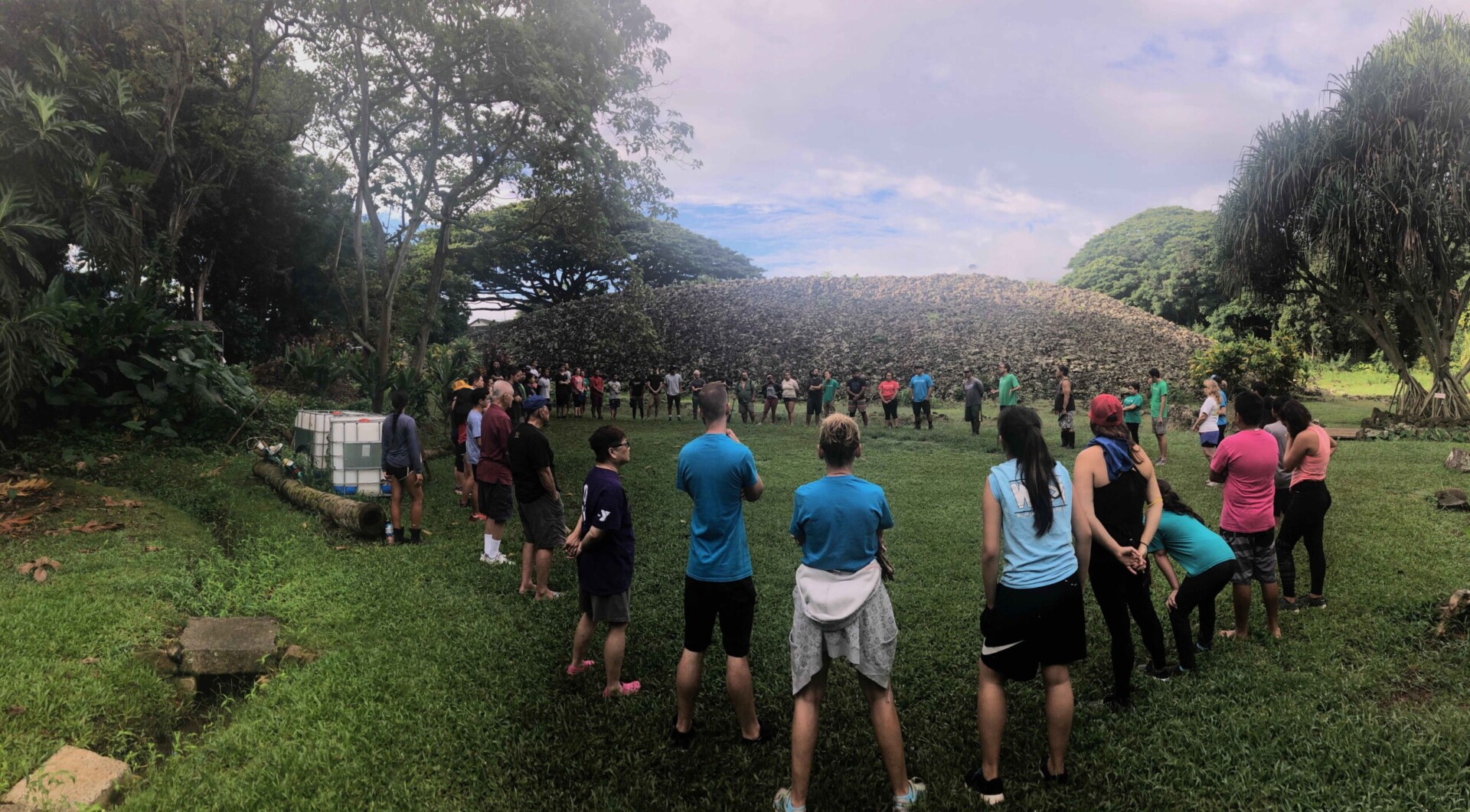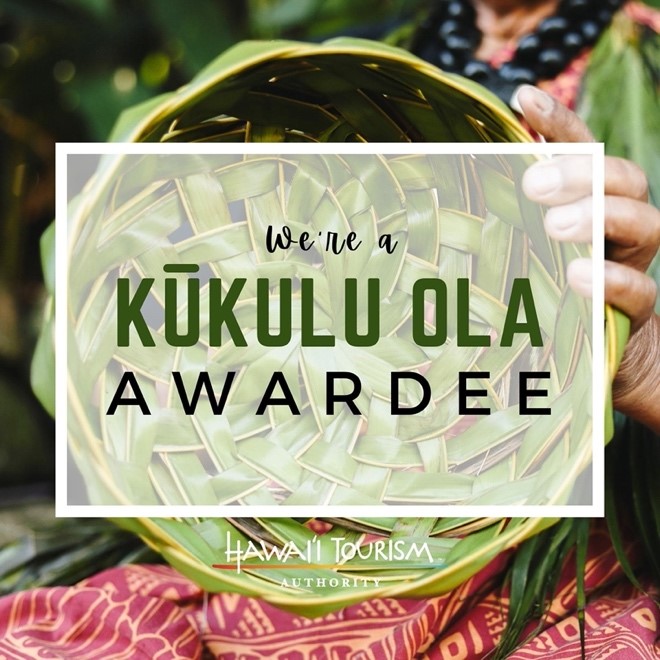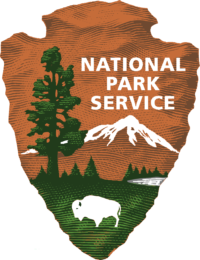In July 2024, Historic Hawai‘i Foundation announced the second cohort of partners in its Native Hawaiian Organization Stewardship Training Program.
The NHO Stewardship Program is a five-year initiative between HHF and the U.S. Department of the Interior to build capacity of NHOs towards historic preservation and stewardship with the goal of ensuring that their traditional cultural stories and places are being documented, preserved and shared in an appropriate manner with visitors and residents. Building on the success of the first cohort of NHO Partners, selected in 2022, a second Request for Proposals (RFP) was issued in 2024.
The second cohort of NHO Partners includes projects on Kaua’i, O’ahu, and Hawai’i Island.
Cohort 2, Project 1: Hui Malama O Kāneiolouma was selected for a stewardship training, preservation, and restoration project at Kāneiolouma Heiau Complex in Po‘ipū, Kaua‘i.
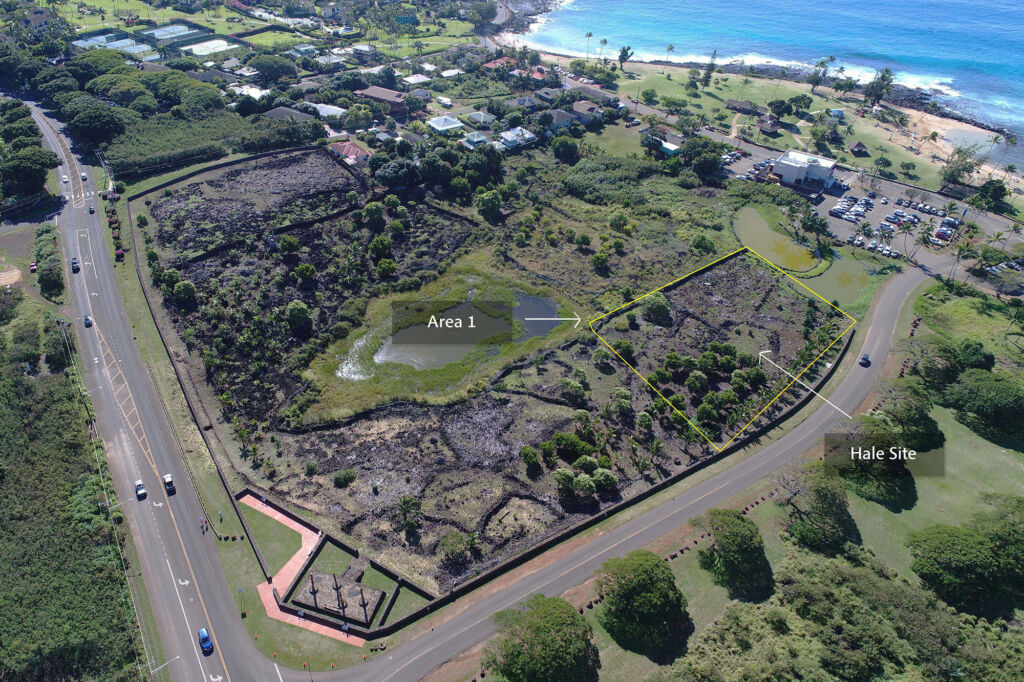
Aerial View from Northwest of NHO Project Area at Kāneiolouma Heiau, Poipu, Koloa. Photo by James Aikman, courtesy Hui Malama O Kaneiolouma.
Kāneiolouma Heiau Complex is a significant cultural site containing intact remnants of an ancient Hawaiian village located in the heart of Po‘ipū, Kōloa, Kaua‘i. Currently under the jurisdiction of the County of Kaua‘i, the complex includes the natural spring of Waiohai, ancient house sites, a fishpond, taro fields, surface irrigation channels, shrines, altars, and idol sites dating back to at least the mid-1400s
Members of the Native Hawaiian group Hui Mālama O Kāneiolouma have cared for Kāneiolouma Heiau Complex for more than a decade. The group has an enduring vision and mission to protect, restore, interpret, and share Kāneiolouma as a public cultural preserve. Under a Stewardship Agreement signed in August 2010, the County of Kauaʻi granted official custodianship of the Kāneiolouma complex to the Hui.
The project supported by the Historic Hawai‘i Foundation program will include providing a series of ten (10) dry stack masonry trainings to twenty (20) Native Hawaiian practitioners to restore 500-feet of ancient Hawaiian village inner wall throughout the year.
Cohort 2, Project 2: The Kohala Center was selected for a stewardship training, preservation and restoration project at Ulu hala of Niuliʻi in Kapa‘au Hawai‘i.
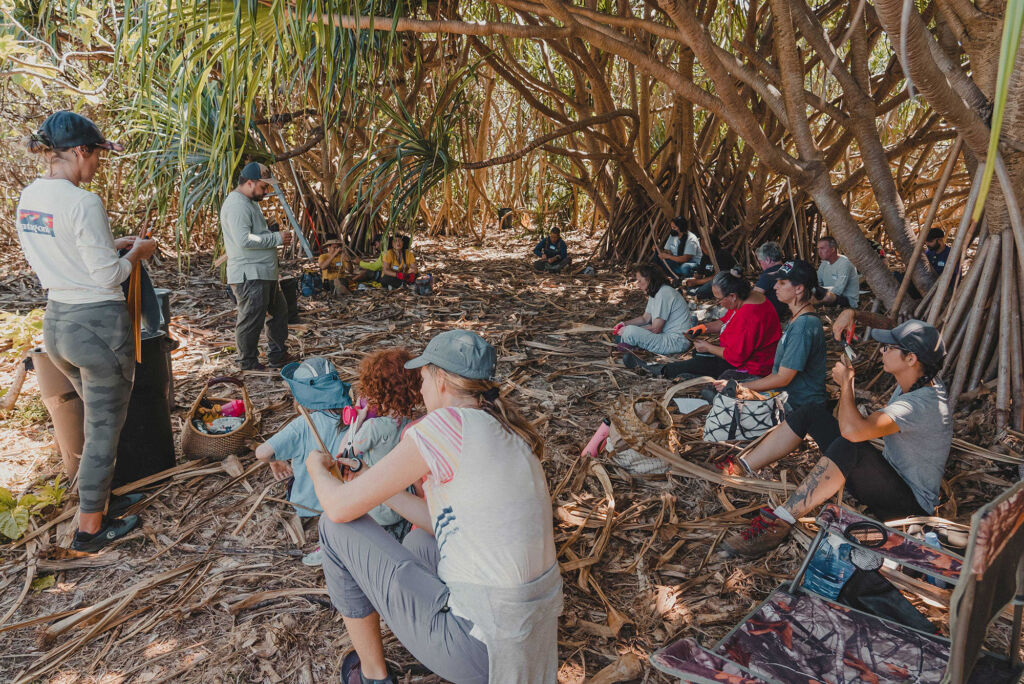
Hana lauhala (processing lauhala) with community, Kalalae Ma Uka, Niuliʻi Kohala, 9-17-22. Photo by Anianikū Chong, courtesy The Kohala Center.
The Niuliʻi historic property that is home to the ulu hala comprises 48 acres of native coastal ecosystem. The property has deep cultural and historical importance to the community. A historical, hand-drawn map of Niuliʻi in 1874 showed 70 acres of ulu hala present. In 2022, the Kohala Center mapped the extent of the remaining ulu hala in Niuliʻi and found approximately 4 acres intact, amounting to close to 66 acres lost in the past 150 years. Despite the loss of much hala to the expansion of the sugar industry and the influx of non-native populations in the 19th and early 20th centuries, Niuliʻi has the largest concentration of ulu hala remaining in Kohala today.
The mission of The Kohala Center (TKC) is respectful engagement with Hawaiʻi toward a restored state of pono (overall well-being). TKC cultivates conditions that reconnect with place, water, food, and people, so that communities in Hawai‘i can thrive—ecologically, economically, culturally, and socially. TKC serves the interests of Native Hawaiians by working to turn ancestral knowledge and place-based research into daily practice.
The project supported by HHF will include providing four introductory Hoa‘āina Stewardship Experiences for 60 participants, eight monthly Hui Hoa‘āina La Hāna (community work days) continuing experiences for 16 participants, twelve Mālama Niuli‘i monthly meetings, and daily use stewardship practices to protect and preserve native ulu hala of Niuli‘i historic site.
Cohort 2, Project 3: Mālama Loko Ea Foundation was selected for a stewardship training, preservation and restoration project at Loko Ea Fishpond in Hale‘iwa, O‘ahu.
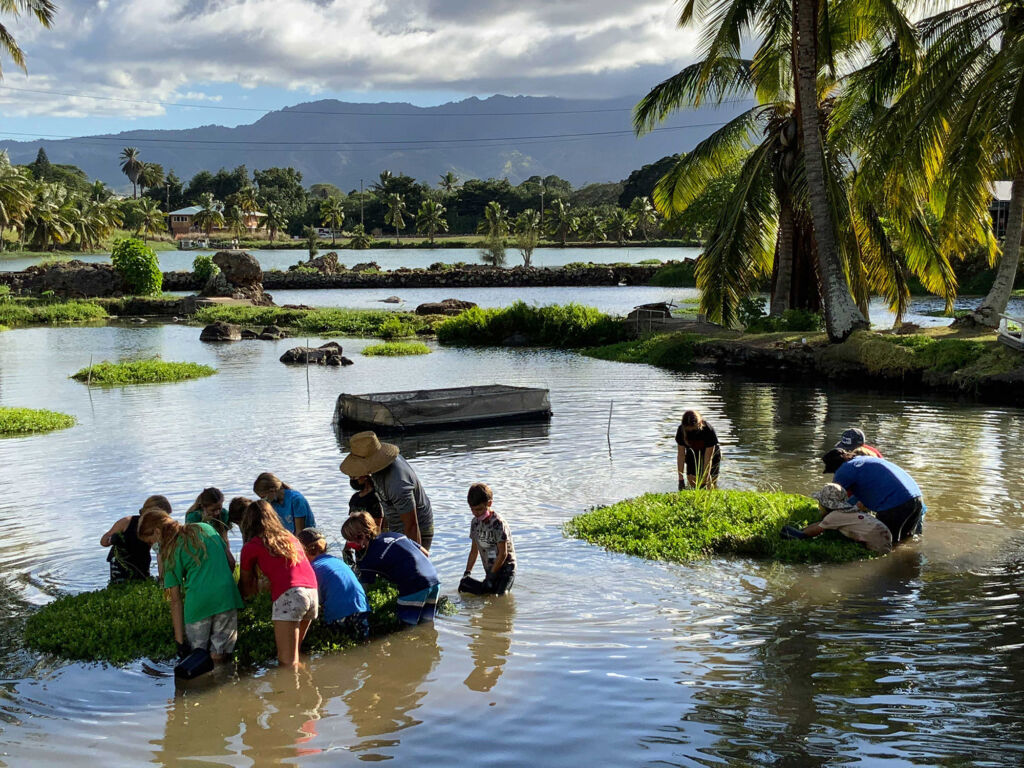
Students at Loko ea. Photo courtesy of Malama Loko Ea Foundation.
Dating back to the 1600s, Loko Ea Fishpond is a “wahi kupuna” or ancestral place of importance associated with ancient deities, cultural practices and historical events. Hundreds of years ago, Loko Ea was located in the center of a Hawaiian village where multi-generational families grew and gathered aquatic resources like native fish and seaweed. Located on the famous North Shore of O‘ahu, Loko Ea Fishpond is a small fresh-water pond covering 2.5 acres, still in active use. The present pond is divided from a small stream, into which its outlets (makaha) open, by a stone and earth embankment.
Mālama Loko Ea Foundation (MLEF) is a community-based organization situated at the historic fishpond. With emphasis on Hawaiian language, values, and practices, MLEF programs directly address the unique needs of Native Hawaiians who thrive in place-based, hands-on, and culturally relevant learning. Since its founding, MLEF has hosted over 60,000 Hawaiian students and community members for educational programs, cultural workshops, and community work days.
The project supported by HHF will include providing hands-on learning opportunities in fishpond restoration for an estimated 350 Native Hawaiian Students from 16 schools to restore one acre of land/water, propagate 500 native plants, and remove 1,000 cubic feet of invasive plants from Loko Ea Fishpond.
Learn More
Program information, submittal requirements, and program deadlines.
Sign up to receive email notifications about upcoming program events and announcements.
Second Cohort Selected For Native Hawaiian Organization Stewardship Training Program
In July 2024, Historic Hawai‘i Foundation announced the second [...]
NHO Stewardship Program Moves Forward with First Group
In October 2022, Historic Hawai‘i Foundation announced the first [...]
NHO Stewardship Training Program Awarded HTA Grant Funding
We're excited to share that Historic Hawai‘i Foundation is [...]
In the news…
Hawaii Public Radio’s Culture & Arts Reporter, Jayna Omaye, talks to NHO program stewards.



